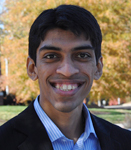
Exploring the Siriraj Hospital at the Second Global Forum on HRH
 Despite the 6:30 a.m. reporting time, the field trip to Siriraj Hospital in Bangkok—part of the Second Global Forum on Human Resources for Health—turned out to be one of the best events of the week.
Despite the 6:30 a.m. reporting time, the field trip to Siriraj Hospital in Bangkok—part of the Second Global Forum on Human Resources for Health—turned out to be one of the best events of the week.
Siriraj Hospital, part of Mahidol University, is the oldest and largest hospital in Thailand. We were told that the attached medical school produces about a quarter of all Thai medical graduates.
Besides its numerical strength, the school also pays great attention to a number of issues relevant to the transformative scale-up of health worker education.
Changing the urban/rural maldistribution
Acknowledging the gross disparity in health worker density between urban and rural areas, the medical school has introduced two initiatives that encourage rural practice among medical school graduates.
- First, it mandates that all medical school graduates complete a three-year rotation in a rural area.
- Second, the Faculty of Medicine started a rural-track medical degree that enrolls students from rural areas. These students then undergo their practical education in rural health centers.
In keeping with global trends, this program has greatly encouraged more medical school graduates to continue practicing in rural areas.
Practice-based research agendas
Another initiative that struck me as quite remarkable was a program that they call “Routine to Research.” This initiative calls upon the faculty and medical students to identify gaps in knowledge that they come across in their daily practice of medicine in order to drive their research agendas.
They have incorporated the element of research into the quality improvement evaluation of their processes, which in turn has tied a huge premium to research-related activities. This has yielded rich dividends in terms of the quantity and quality of research that is published by the institution.
Furthermore, the hospital’s forward-thinking mindset has also led dyed-in-the-wool physicians to commit themselves to quality improvement to such a degree that they spoke of management principles such as Lean methodologies and Six Sigma with the fluency and ease of a Fortune 500 CEO.
Traditional medicine
Part of our day-trip also included a visit to a Thai traditional medicine center where the hospital formulates its own herbal medicines and subjects them to rigorous quality control before they are administered to patients. One section of the traditional medicine center deals with massage therapy, and confers bachelor's and master's degrees to massage therapists.
In the discussion around the definition of health workers, I came to wonder whether massage therapists should also command their own space. I wouldn’t be terribly against the idea, but the complimentary massage that they gave us probably prejudices my discretion.
As part of the CapacityPlus delegation to the Global Forum, I’m eager to learn more about various countries’ approaches to solving their health workforce issues.
Related items:
Photo by Jennifer Solomon


